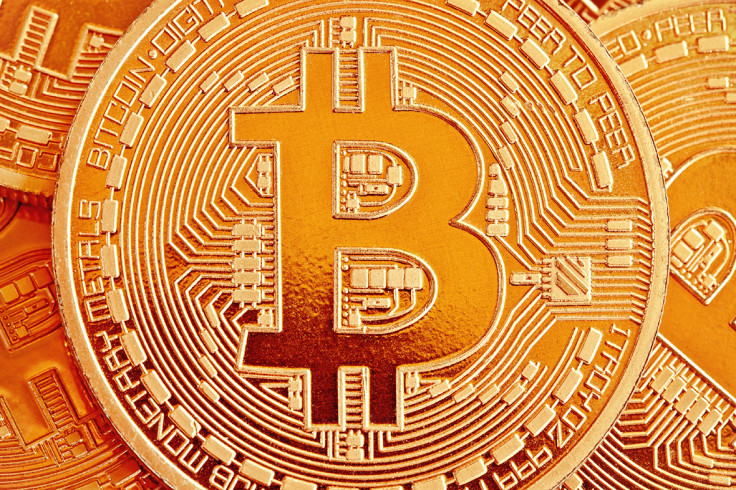Godfather of Bitcoin Adam Back explains how blockchain will prevent another banking crisis

The removal of trust from banking systems, brought about by the real-time audit effect of bitcoin's technology, would avert future financial crises like the one we saw unfold in 2008.
Adam Back, the founder and president of Blockstream, describes bitcoin's validating blockchain technology as "a protocol upgrade for the world's financial networks which is maybe more open than it has been in the past".
In 1997 Back invented Hashcash, which functions like a digital postage stamp and which makes scaled up spamming of email uneconomical. The Hashcash proof-of-work functionality was later used in the creation of bitcoin.
Back told IBTimes: "I think trust issues are a big cost to banks because the system is as secure as the weakest link. So if you see banks in less well regulated jurisdictions, smaller banks, sometimes they have difficulty maintaining a correspondent banking relationship that connects themselves out into the wider world.
"That's basically because the other banks don't trust them. They don't know if they are about to go bankrupt or if they have cooked the books or what have you. That kind of risk you saw reach huge proportions when it caused a freeze in the 2008 crash; nobody trusted anybody so the money market froze up and nobody would lend money to anybody else."
Bitcoin provides a kind of real-time audit effect: each block that gets confirmed or each transaction received, comes with the assurance of being honoured. There are no undisclosed liabilities in such a system.
Using a blockchain format, banks can receive payments or make loans to another bank with the assurance that the counterparty is not sitting on some mountain of toxic debt, for instance.
"I think you could also make the claim that ultimately regulators should see that this is good for consumers with potentially more lightly regulated financial products and institutions that are blockchain real-time audited," said Back.

He added that where people own investment products, and would use the services of a custodian, a system using multi-signatures (the use of additional private keys) could be used.
This would prevent the custodian from spending your funds or doing unauthorised borrowing or proprietary trading against your funds without your approval: a kind of 2-of-2 banking mandate that's actually enforced by the blockchain, rather than by a policy which can be bypassed.
Back said banks have been surprisingly forward thinking in their exploration of this technology. "If people had asked like a year or two ago how fast would the banks participate in this, get involved in starts exploring use of blockchain into their systems, people would not have expected it to be where it is today", he said.
"Banks can't use an open network currently because their whole security model relies on reconciliation and trust and private networks and armed guards and all that kind of stuff.
"But with blockchain technology you are sort of tokenising everything so the shares and the bitcoins and the fiat currencies and so on are all represented by tokens that are unforgable.
"Right now in the financial networks they are represented by database entries that have to be kept under lock and key to prevent one bank editing it and just adding money to their balance.
"It's only really auditors that can uncover things like that a year or two after the fact."
Smart contacts
Bitcoin's underlying technology allows the outsourcing of the execution of a contract to the blockchain. The lowest hanging fruit in this respect are thought to be the contracts involved in the creation of financial products, like structured products and options.
These are actually executed by companies and lawyers, and there is inherent ambiguity in them: sometimes the contracts will be broken, or the company that issued a contract goes bankrupt preventing the beneficiary from collecting on their option or product. There is an element of trust; you trust the company to issue the product to execute it in your favour.
Smart contracts change that. There is no third party trust involved because the contract can be a program and it can execute automatically when the holder chooses to exercise it, potentially much more cheaply.
"It's quite interesting to see the removal of third party trust because in many ways the fees of the financial system and the companies involved in that charge, are related to trust and reputation," said Back.
There is some debate about the extent to which humans will oversee and arbitrate smart contracts. Some have welcomed a day when lawyers will be redundant.
Back said: "I think that a smart contract is just back to the principle that ownership is nine tenths of the law, so if the smart contract executes in your favour - good, you made money on that deal.
"But if you feel there were some misleading sales that went into it and you are on the losing side or something, well then you would take that to court.
"If the court ruled in your favour they would order the party who made the misleading sales pitch of the financial product to reimburse you or compensate you. So the contract itself would not be undone but a new transaction would be made to pay reparations basically.
"It's quite similar to the status quo in many ways. I think people often don't understand that financial ledgers are not usually undo-able. If there is an error on a bank statement or an e-trade statement, the error remains and a second transaction corrects it.
"Obviously for accounting and integrity reasons that they need to record the error and the correction and not just wipe it out. So in that sense contracts can function and interact with the legal system and dispute processes and so on," noted Back.
In the case of PayPal and credit cards, a percentage fee is levied on transactions for dispute resolution costs or the insurance costs. But in the case of bitcoin there is finality to transactions, which means a kind of flat fee irrespective of the amount. That finality means bitcoin payments tend to be cheaper for larger amounts. Smart contracts also have this finality property.
People have put forward the hypothetical of making bitcoin transactions revocable, building a revocable system on top of an irrevocable one.
This could be done using multi-signature functionality, noted Back. "Say you have received this money but you can't spend it for a week, let's call it the settlement time, and there is a second signature, who is like a banking ombudsman or the sender's bank or something.
"If there is a dispute they will take the money back and you don't actually get to spend it until it's settled.
"So that would give you revocability but then people would engage in the equivalent of credit card fraud and hostile charge backs and there would be fees.
"You would probably get back to PayPal and credit cards' kind of percentage costs to cover the fraud costs - they are in business to make money but they have actual percentage-related costs, which is basically why their fee structure looks as it does," he said.
Sidechains
The bitcoin network has a lot of value in it which means making changes to it has to be done with care and quality assurance and positive improvements in the code and protocol are cautiously approached. This makes the network somewhat conservative in terms of updating.
To some extent, the way people would work around that is to spin up a new system. Many of the new systems have been focused on replicating bitcoin's success trajectory for the enrichment of the proposer.
Back's Blockstream uses a "two-way peg" system to attach interoperable sidechains to the blockchain. These sidechains can test out issued assets like financial derivatives traded by banks, as well as added layers of confidentiality.
"So what sidechains tries to do is bring innovation back to bitcoin. It has no native coins - you just move bitcoins into it and you can move them back out again and then the chain can support new features.
"The sidechain Alpha that we released has support for issued assets, so the same kind of thing that coloured coins support, where people can issue bonds and shares and so forth and also extensions for confidentiality of transaction values.
Back said people can pick up the code base and make sidechains with their own preferred features. "It's still quite complicated technically to do but it can be done in parallel with bitcoin development, without competing for developer attention or resources in the main bitcoin project," he said.
Back said he thinks there have been some interesting altcoins, but that they are problematic in terms of maintenance and security because there are so many of them and developers don't have the expertise to maintain them.
"If you start a new network there are hardly any miners and one guy with his garage of GPUs can pretty much blow away the network, and that has happened a few times.
"Also you get the kind if interoperability problem. If you just want to use the feature, you don't want to necessarily to get exposure to this kind of penny stock-like altcoin currency let's say, sidechains gives you a way to just go for the features and have interoperability and security," he said
Returning to the question of trust within financial institutions and the transparency of a distributed ledger, Back said sidechains can retain a fair amount of commercial confidentiality.
"The Confidential Transactions feature we put into the sidechain release we did earlier this year works by not disclosing the value of the transaction to the network. It's only disclosed to the parties - the sender and the recipient, and potentially their auditor," he said.
The system uses some advanced cryptography so that the miners and full nodes that validate the network are able to check that the inputs add up to the outputs, so it balances.
"They can see that encrypted 3 + encrypted 5 = encrypted 8, but they don't know what any of the values are," said Back.
"Using features like that you can really prove a whole bunch of stuff about your bank or your business and its financial state without disclosing information and removing trust.
"Significantly reducing dependence on trust on third parties from the system should ultimately reduce systemic risk," he said.
© Copyright IBTimes 2025. All rights reserved.





















